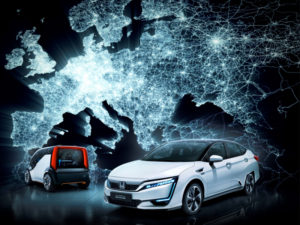European new car market to be all-electric by 2035, report claims
All new passenger cars sold in Europe could be electric by 2035, with driver concerns with charging infrastructure, range anxiety and pricing about to be overcome, according to new research.
The report by Dutch bank ING finds says new battery technology should improve range to increasingly meet consumer expectations from 2020 onwards while a continued decline in battery costs will enable a high-range battery electric vehicle to become cost competitive with a comparable petrol car in 2024 – with the break-even point moving to 2028 for cars equipped with a longer-range battery. At the same time ICE cars with face higher costs due to stricter emissions regulation. And ultra fast charging of batteries will enable a 300km charge in 20 minutes, which will further improve over time.
The report adds that a growth path in which battery electric vehicles near a 100% share in new cars by 2035 is increasingly realistic, challenging Europe’s automotive industry, which holds close to 25% of global car production.
The researchers said the move will have a drastic impact on the European car market. Currently, European car manufacturers are at the forefront of internal combustion engines (25% market share), but their share in lithium-ion production used in electric cars is only 3%. Therefore, it is likely that both Asia and North-America will get a bigger foothold in the European car market due to their great supply of resources.
The report’s authors added that the challenge for Europe’s automotive industry will be to move from a traditional business model in which value is drawn from production and sales of cars to a business model that offers value in facilitating efficient and affordable car usage. Opportunities lie in Mobility as a Service (MaaS) solutions, such as leasing and car sharing, which can be optimised by electric cars.


